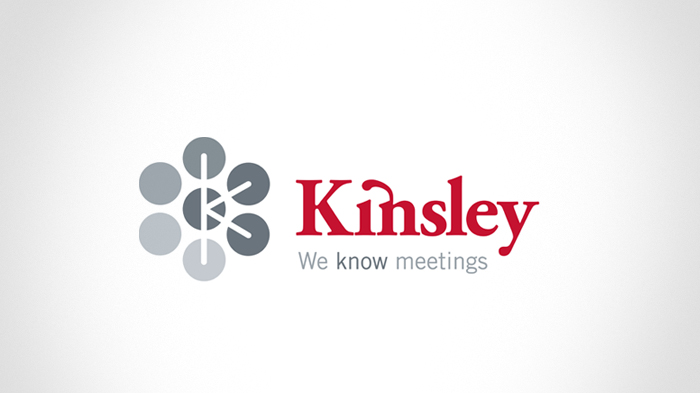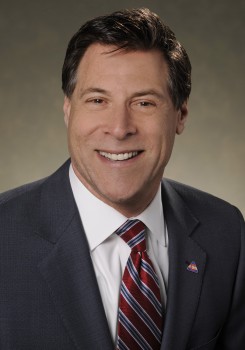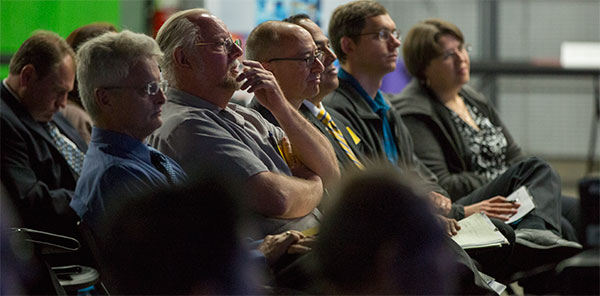There are few things in this world that need protection as much as a newborn child, and, for the most part, their care and protection fall to the parents. But what happens when the parents themselves need help and protection? Each year 4,000 babies are born to teen moms with 67% of those moms living below the poverty line. Life for these moms isn't easy, with less than 1% of them will ever graduate from college and fewer than half will earn their high school diploma. In Colorado, a single mother must work over 80 hours per week at minimum wage in order to meet the basic needs for her and her child. Luckily for them, there are organizations out there who dedicate themselves to helping and caring for these struggling mothers and their children. Hope House of Colorado is one of these organizations. Through residential programs, GED help and career resources, Hope House strives to be a positive force for change in the lives of teen mothers. Through Hope House's efforts teen mothers are provided resources to drastically improve their lives and the lives of their children. and thats not all. What really helps set Hope House apart is the amount of support and love that they are able to share. They provide a safe and caring environment to help support those who need it most, mothers and their children.
Humanity Just Landed on Its First Comet

The European Space Agency's Rosetta mission has made successful contact with the 67P Comet. The lander itself is named after an Egyptian island, Philae, where a rare obelisk containing Greek was found that was used - in conjunction with the Rosetta Stone - to decipher ancient Egyptian hieroglyphics.
It now appears this scientific venture is living up to its namesake by helping humanity learn about a much older mystery: the composition of comets and the conditions of the early solar system.
Touchdown! My new address: 67P! #CometLanding
— Philae Lander (@Philae2014) November 12, 2014
While today's victory clearly belongs to the scientific community and to all of humanity, it is also big news for Planetary Resources, the asteroid mining company. Imagine the new economic and exploratory possibilities:
1.) Rocket fuel up could be extracted from asteroids, rather than shipped up from the surface of Earth.
2.) Mining asteroids could open access to vast quantities of precious metals such as platinum.
3.) Combining the first two concepts could open up manufacturing in space using both energy and raw materials sourced outside of Earth's gravitational field.
When HTSUS Determines a Sweater is not a Sweater
Harmonized Tariff Schedules of the United States (HTSUS)
A client has purchased a shipment of merchandise described as “Women’s 53% cotton 47% rayon knitted sweaters.”
I checked the HTSUS and decided that these are properly classified under item 6110.20.2020 at 17.3% duty rate. This classification provides as follows:
1. 6110: Sweaters, pullovers, sweatshirts, waistcoats (vests) and similar articles, knitted or crocheted,
2. 6110.20: Of Cotton,
3. 6110.20.20: Other (i.e., other than containing 36 percent or more by weight of flax fibers),
4. 6110.20.2020: Other than boys’ or girls’ garments imported as parts of playsuits, sweaters, women’s,
5. 6110.20.2075: Other (i.e., other than sweaters, vests or sweatshirts), women’s or girls’
What is the Correct HTSUS Classification?
BUT: 6110.20.2020 is the wrong classification for this product. Why?
Because additional information on the commercial invoice states: Stitch count: Horizontal: 10 stitches / 2cm; Vertical: 15 stitches / 2 cm.
Also, statistical note 3 to chapter 61 states, “For purposes of this chapter, statistical provisions for sweaters include garments, whether or not known as pullovers, vests or cardigans, the outer surfaces of which are constructed essentially with 9 or fewer stitches per 2 centimeters measured in the direction the stitches were formed, and garments, known as sweaters, where, due to their construction, the stitches on the outer surface cannot be counted in the direction the stitches were formed."
Therefore, the correct classification for these garments is 6110.20.2075. (Note: The duty rate remains the same, but the textile quota category is different).
Contributed by Patrick Gallagher, Gallagher Transport Int'l, Inc.
(303) 365-1000
©2002 Patrick Gallagher
State Heads Meeting on Opening Up Global Trade
UPDATE: U.S. & China Reach Trade "Understanding." After a lengthy private meeting, presidents Barack Obama and Xi Jingping have found common ground on reducing tariffs on high-tech goods which backers say could cover $1 trillion in trade. The breakthrough will help bring talks on expansion of the global Information Technology Agreement to a "rapid conclusion." U.S. officials told the Associated Press that the progress with China includes an agreement to eliminate tariffs on goods like medical devices, global positioning systems, and video game consoles.
Additional updates: Beijing has also announced a free-trade agreement with South Korea. The Chinese stock markets will become open wider to foreign investors following new regulatory approval of linking the exchanges in Hong Kong and Shanghai. All this is following an announcement over the weekend of a $40 billion fund to improve trade links between Asian economies, financed by China.
John Engler, President of the Business Round Table:
“I believe Congress has an immediate opportunity in the lame-duck session to pass Trade Promotion Authority legislation to give the President and U.S. negotiators the tools they need to conclude promising trade agreements with Asia-Pacific countries and the European Union."
Heads of State Meeting in Beijing for APEC Summit
The leaders of the Trans-Pacific Partnership (TPP) member countries will be meeting around the Nov. 10-11 Asia-Pacific Economic Cooperation (APEC) summit in Beijing, U.S. National Security Adviser Susan Rice confirmed. APEC is hosting the Economic Leaders' Meeting in the capital city of China.
The TPP leaders meeting will be Nov. 10, following a planned Nov. 8 negotiating session of the 12 TPP trade ministers from Australia, Brunei, Canada, Chile, Japan, Malaysia, Mexico, New Zealand, Peru, Singapore, the U.S. and Vietnam.
“We're working with our Asian partners to deepen our trade and investment ties through progress on agreements such as the WTO Information Technology Agreement and the environmental goods and services agreement[s], and we're working to bring China into the rules-based institutional structures in Asia,” Rice said, referring to the ongoing negotiations toward an Environmental Goods Agreement and toward a Trade in Services Agreement.
Regarding the president's Nov. 11-12 meetings with Chinese President Xi Jinping over the final day-and-a-half of the visit, Rice said that the meeting will present an opportunity to identify a forward-looking agenda for the next two years of the bilateral relationship.
She said that the president will seek to build a relationship with China that advances American economic and security interests and solves global problems in ways that reflect American values. She noted that the issue of cybersecurity will be prominent on the U.S.'s bilateral agenda.
“This is a source of grave concern to the United States,” Rice said. “We have reiterated on every occasion the fact that we oppose any efforts, official or unofficial, to engage in cyber-espionage for commercial gain or other purposes—and this has been and will remain a topic of discussion.”
UN Trade Urging G-20 to Resist New Restrictive Trade Actions
Group of 20 members should reduce restrictive trade measures as a means of stemming the world's stagnant growth trend, United Nations trade leaders said in a report released a week ahead of the G-20 conference in Brisbane, Australia.
“Prevailing global economic conditions mean that this is not a time for complacency in the international trading system,” according to a joint statement from the leaders of the World Trade Organization, the Organization for Economic Cooperation and Development and the UN Conference on Trade and Development.
The report, which evaluated trade and investment measures implemented from mid-May to mid-October 2014, noted that G-20 members have applied 93 new trade-restrictive measures during the last five months, which account for an estimated $118 billion in global merchandise value.
G-20 members have implemented 1,244 trade restrictions since the 2008 economic crisis and have removed 282 in the following years.
“The G-20 economies must take decisive action to reduce this stock of trade restrictions by showing restraint in the imposition of new measures and by effectively eliminating existing ones,” the report's authors wrote.
The report concluded that the overall trade policy response to the 2008 crisis was “significantly more muted” than had been expected.
“This shows that the multilateral trading system has acted as an effective backstop against protectionism,” the report said. “However, it is clear that the system can do more to drive economic growth, sustainable recovery and development.”
(See the full WTO news item)
Business Ownership Is Normal, Being An Employee Is Historically the Exception
Here's the historical perspective on why no one wants to be an executive and why 65% want to own their own business. We are going back where we came from - business ownership.
For Thousands of Years We Did It Differently
Employment is For Children Only--Adults Need Not Apply
People Still Don't Want to Be Employed
Employees Take More Risks
Owning Your Own Business Only Seems More Risky
Own a Business, or Work For Someone Who Will Encourage You to Own
Back To The Future
Connect & Collaborate - Tom Tancredo
Now that the elections are over, let's all just be relieved that there are no more campaign ads on the air. Whew! Wouldn't you rather hear politicians speak intelligently, about what matters? Well, you're in luck. Connect & Collaborate with ICOSA has the distinct pleasure of speaking with Congressman Tom Tancredo.
Along with co-host Jeff Wasden, President of the Colorado Business Roundtable, we discuss Tancredo's unlikely start in government [It was a deal with the high school civics class he taught!] and how he sustained a long, impressive political career.
Tancredo is adamant that government can't legislate morality, stupidity or common sense. That the more we ask government to do for us, the less government can do well.
Learn more about the congressman's experience. Listen Saturday at 1:00 on KNUS 710 – Please let us know what you think of our program, either by commenting here or on Facebook at Connect & Collaborate with ICOSA or join the discussion on Twitter @ICOSAMagazine.
U.S. Payrolls Grow Nine Months in a Row
Employers have together added 214,000 workers to U.S. payrolls in October. This marks the ninth consecutive month the number of people with jobs in the U.S. has been increasing. Correspondingly, the jobless rate has dropped to the lowest level in six years as the American economy is powering through the global economic slowdown. The previous month's growth is now known to be 256,000 new jobs -- more than was initially estimated -- according to the latest figures from the Bureau of Labor Statistics. Including the latest numbers, the jobless rate has fallen to 5.8 percent, even as more people are entering the labor force. This is boosting the share of the population working to the highest in five years.
“Despite all the talk about the global economy, the U.S. domestic economy seems to be doing fairly well,” says John Silvia, chief economist at Wells Fargo Securities LLC
The underemployment rate -- which includes part-time workers who would prefer a full-time position and people who want to work but have given up looking -- declined 30 basis points to 11.5 percent, the lowest since September 2008.
However, other economists warn against becoming overly optimistic just yet because the “labor force participation rate” — a measure of how many Americans are working as a percentage of the overall labor force — is still a very low 62.8%, nearly the lowest level since the recession of 1978.
As the forces of Schumpeterian creative destruction (innovation & entrepreneurship) are continuing to drive economic growth, these processes are also destroying the value of established companies and even laborers that had previously enjoyed some level of monopoly power. It remains to be seen what will happen to labor’s share of national income relative to capital’s share — an issue at the heart of the growing debate around rising inequality.
The U.S. Department of Labor is continuing to promote the growth of good jobs by sharing best practices from subject matter experts. Recently, they hosted Dr. Zeynep Ton (pictured above), who teaches operations management at the MIT Sloan School of Management and authored the book, The Good Jobs Strategy: How the Smartest Companies Invest in Employees to Lower Costs and Boost Profits. After studying retail operations for more than a decade, Professor Ton has been finding that some of the most successful businesses are choosing to make significant investments in their employees — and making a lot of money doing it.
During her recent research presentation, Dr. Ton said, “Offering good jobs is a choice that’s available to all retailers – small, large, regional, national, public private if you want to move our economy more towards a good jobs economy that works for all, we have to think about not just the wages and benefits, but look at the work itself, because as I examine different companies – from Costco to QuikTrip — what I found was they weren’t just paying their people more, they were designing the work differently. They were designing the work so their employees are more productive, so they are more engaged, so they contribute more, so their job is more meaningful — there is more dignity in their job. Good jobs — in my research and the research of others — good jobs equal good work.”
NASA Missions for the Next 30 Years (an Infographic)
Not long from now, in a galaxy near and dear to our hearts, the National Aeronautics and Space Administration boldly plans to go where no human has gone before. NASA announced their plans for the next 30 years of exploration in our solar system. They plan to start by sending a robot on a 160-day mission to the moon in order to gather more information about the lunar atmosphere, and plan to finally, in the year 2030, achieve the ever-elusive goal of a manned mission to Mars. For more information, check out this handy info graphic provided by Mashable.

Connect & Collaborate - Service Industry Insight
Any vacation or business trip is centered on a place to stay and a worthwhile agenda. Whether that agenda is skiing, hiking, or mastering the ins and out of your company's sales strategy for widgets, business or pleasure, accommodations and plans must be made. The only question is, "Who does the work?" This week, in our Pro-Business Colorado feature with guest host Dave Tabor, we're combining the stories of two intriguing businesses; The Antlers at Vail, a vacation condo rental that breaks the mold of vacation rentals, and Kinsley Meetings, a company designed to take over the planning, organization and facilitation of any kind of business or corporate meeting.
We'll talk with Rob LeVine, General Manager of Antlers Vail, and Steve Kinsley of Kinsley Meetings. Both business men have great perspectives on satisfied customers, overcoming challenges, and emphasizing their unique strengths. 
Steve Kinsley tells us how he learned the hard way, that his company isn't interested in Business to Consumer events, and why they'll stick with Business to Business.
 Rob LeVine shares the challenges of managing properties with various owners, and how they encourage each homeowner/investor to invest with pride, for a bigger return. Both businesses consider and manage events far into the future while handling the here and now.
Listen Saturday at 10:00 AM on KNUS 710 – Please let us know what you think of our program, either by commenting here or on Facebook at Connect & Collaborate with ICOSA or join the discussion on Twitter @ICOSAMagazine.
Rob LeVine shares the challenges of managing properties with various owners, and how they encourage each homeowner/investor to invest with pride, for a bigger return. Both businesses consider and manage events far into the future while handling the here and now.
Listen Saturday at 10:00 AM on KNUS 710 – Please let us know what you think of our program, either by commenting here or on Facebook at Connect & Collaborate with ICOSA or join the discussion on Twitter @ICOSAMagazine.
City of Denver Office of Economic Development Hosts Tech Job Fair
On Thursday, October 30th, The City of Denver and ICOSA Media came together in collaboration in order to strengthen the already booming job market of Denver's tech sector. The event, titled Denver’s Tech Talent: Meeting Tomorrow’s Needs and hosted at the ICOSA Media Event Center, was set up by the Denver Offices of Economic Development to connect those looking for employment with companies seeking talented employees. The day began at 9:00 a.m. when ICOSA Media CEO and founder of the Colorado Business Roundtable, Gayle Dendinger, welcomed all the attendees to the event. Shortly after, tech company CEO's sat down with a representative from the Colorado Technology Association to discuss what drives them to succeed, and how those looking to work in the technology sector could improve their chances of meeting the right company.
After the panel discussion, the fair opened up for the public to meet and talk with some of the biggest and fastest growing tech companies in Denver. Special consideration was made for veterans who re-entering the work force, and all were given a chance to get to know a lot of the companies driving the economic success story that is Colorado.
A full photo gallery can be found here.
[gmedia id=8]
U.S. Investing in Advanced Manufacturing
Launching this week, several executive actions are aiming to strengthen the economy through advanced manufacturing. The Departments of Defense, Energy, Agriculture and NASA are announcing more than $300 million in new investments into three key technologies that are being called crucial to the industrial competitiveness of the United States: 1.) advanced materials including composites and bio-based materials, 2.) advanced sensors for manufacturing, and 3.) digital manufacturing.
The executive actions are building upon the recently-published report by the Advanced Manufacturing Partnership -- a national council of 19 leading CEOs, labor leaders, and university presidents co-chaired by Andrew Liveris, CEO of Dow, and Dr. Rafael Reif, President of MIT, collaborating with more than 100 industry and academic experts.
The final report is recommending measures that are encouraging innovation, securing the talent pipeline, and improving the business climate. Click here to see the full .pdf, or view embedded below.
Chaired by Andrew Liveris, President, Chairman, and CEO of the Dow Chemical Company, and Rafael Reif, President of the Massachusetts Institute of Technology, the AMP Steering Committee includes:
- Wes Bush, Chairman, CEO and President, Northrop Grumman Corp.
- Mark Schlissel, President, The University of Michigan
- David Cote, Chairman and CEO, Honeywell
- Nicholas Dirks, Chancellor, University of California, Berkeley
- Kenneth Ender, President, Harper College
- Leo Gerard, International President, United Steelworkers
- Hon. Shirley Ann Jackson, President, Rensselaer Polytechnic Institute
- Eric Kelly, President and CEO, Overland Storage
- Klaus Kleinfeld, Chairman and CEO, Alcoa Inc.
- Andrew Liveris, President, Chairman, and CEO, The Dow Chemical Company
- Ajit Manocha, Senior Advisor, GLOBALFOUNDRIES
- Douglas Oberhelman, Chairman and CEO, Caterpillar Inc.
- Annette Parker, President, South Central College
- G.P. “Bud” Peterson, President, Georgia Tech
- Luis Proenza, President, The University of Akron
- Rafael Reif, President, Massachusetts Institute of Technology
- Eric Spiegel, President and CEO, Siemens Corp.
- Mike Splinter, Executive Chairman of the Board, Applied Materials Inc.
- Christie Wong Barrett, CEO, Mac Arthur Corp.
For more information about the Advanced Manufacturing Partnership, please visit:http://www.manufacturing.gov/amp.html
How a Standby Letter of Credit Helped a College Team Play Football Down Under
Standby letter of credit, Wire transfer, Guarantee of payment, Confirmation
The Fear of not Getting Paid
The athletic director of a Colorado university called with a dilemma. Along with the rival team of a neighboring state, Colorado football players were scheduled to play an exhibition game in Australia.
Both schools and the promoter of the event in Australia agreed in advance to share the game’s receipts, which amounted to a considerable sum of money. Colorado’s share of the money would cover expenses such as travel and lodging.
Since the promoter promised to initiate a wire transfer within a week after the game, it occurred to the athletic director that the school would face an undesirable deficit if they never received the wire transfer. “How can I have assurance of payment?” he asked.
A Standby Letter of Credit as a Solution
I suggested a standby letter of credit as a solution. The athletic director certainly could outsmart me in the offensive and defensive strategies in the game of football, but he did not understand the concept of a standby letter of credit.
I explained how the promoter in Australia could request a bank in Australia to issue a standby letter of credit (effectively, a bank’s guarantee of payment). His school could demand payment from the bank in the event they did not receive the wire transfer as agreed. As he began to understand the scenario, the athletic director asked an insightful question: “Why would the promoter in Australia agree to issue a standby letter of credit to us? What if we collect the money without even making the trip?”
A Standby Letter of Credit can Protect Both Parties
His question looked at the issue from the other side and it lead to a discussion of how the letter of credit could also protect the promoter in Australia. We decided the promoter would be protected if the letter of credit to the Colorado university required the presentation of two documents: (a) a statement that the school did not receive the wire transfer, and (b) an article from an Australian newspaper covering the game. This would prove that the schools actually played the game.
Both parties agreed to the solution and a bank in Australia issued the standby letter of credit accordingly.
Later, the athletic director had another intuitive thought. “I don’t know anything about banks in Australia. How do I know they can stand behind their commitment?”
I assured him, “My bank knows the Australian bank well, and if it would help you sleep better at night, we will confirm the letter of credit.” Since a confirmation would act as a guarantee, he wouldn’t need to worry about the Australian bank and he liked this solution.
Getting Paid with a Letter of Credit
A week after the team returned from the game in Australia, I received a call from the director. He asked to make an appointment so he could collect payment from the standby letter of credit.
Surprised, I asked, “Did they default on their payment?”
“No,” he answered, “they decided to simply permit us to use the standby letter of credit as the payment.”
When he arrived in my office, I asked, “Did you bring a newspaper clipping with you?” He opened his brief case and produced five complete newspapers, each from a different publisher in Australia. Since we only needed one article as proof, we sent him back to the university with the other four, happily carrying a cashier’s check for his school’s share of the game’s receipts.
Because of the flexibility of standby letters of credit, they can provide security in a variety of scenarios. This lesson illustrates how they can provide security for a financial obligation.
81% of Adults Would Work Better Without a Manager: Are You One of Them?
More and more companies are eliminating managers altogether. Would you be one of the four out of five that would thrive there?
The Gallup Employee Engagement Index shows that 29% of people could be self-managed without being encouraged to do so. Another 52% of people will take charge and be contributors if in the right environment that encourages participation. And 19% are incorrigible--they won't step up no matter how hard you encourage it. It's a survey about "engagement", but corollary research shows that managers are the biggest impediment to people being engaged. The good news is that if a company creates the right culture and a managerless structure, 81% of people will get on board.
Why is this important?
I hear it every week: "We can't find good people." What does "good" mean? Someone who will take the bull by the horns, get things done well and on time, and not require babysitting to do it. But the fact is I only hear that from companies with managers. I'm aware of 100 or so companies that don't have managers (and there are easily a few thousand that I'm not aware of), and I've never heard them say they can't find good people.
Just a Few Companies Without Managers
These businesses and many more like them have been able to staff their entire companies with people who don't need to be managed. Here are just a few:
Whole Foods 60,000 Stakeholders
W.L. Gore 10,500 Stakeholders
Barry-Wehmiller 7,500 Stakeholders
Menlo Innovations 300 Stakeholders
Valve Corporation 100 Stakeholders
Crankset Group (full disclosure--that's our company) 21 Stakeholders (6 full-time)
Let's be clear. These are companies in which no one works for anyone else--there are no bosses or managers. Leaders become leaders because people are following them, and they stop being leaders when people stop following. A healthy Participation Age company needs the management function, but never needs managers. Teams manage themselves by dividing up the management functions among team members. In doing so, they find that the overwhelming majority of what managers do just isn't necessary, and that the position of manager is irrelevant.
These companies, and many more like them, have been able to do this when others "can't find good people" for one simple reason: They've created organizations that don't have managers. This attracts the 81% who don't want to live in an office day care center, but want to function as decision-making adults both at home and at work.
Conversely, when you build a company around managers, you actively attract the 19% who don't want to grow up at work and love being told what to do. And you make it clear to the 52% in the middle that if they want to keep their jobs, they'll stop asking why, do what they are told, and focus solely on production. In these companies, the 29% who are natural stakeholders will be considered annoying because they keep asking questions like, "Why?" and suggesting better ways to do things. Managers are threatened by these people and expend a lot of energy putting them in their "place."
This is why great people leave companies. When people are managed, you destroy their desire or even their ability to bring the whole, messy, creative person to work. And that is the part of the person that will be the most valuable to any company in the long run, not the part that is simply "productive."
Could you make it in one of these managerless companies? Are you one of the 29 percent who are joyfully annoying, or maybe part of the 52% who would love to have a brain at work if they were only allowed? If so, welcome to the Participation Age. Now go find one of those companies that will welcome you with open arms. They're all around us, and becoming more common all the time.
Connect & Collaborate - Jon Hokama
Connect & Collaborate with ICOSA is dedicated to bringing you interviews with experts who can help you do business better. From inspiration to implementing ideas, we want to share the keys to getting the most out of your business. This week, our guest is Jon Hokama of Principal and Founder of Jon Hokama and Associates, who works with technology and finance businesses to build a future for themselves and for their businesses. Jon gives the example of providing outside eyes, someone who can offer an unbiased perspective of your business or work situation, yet knows enough about how your business works to offer strategic advice.
As a certified facilitator for the Crankset Group, Jon is able to offer smart, real-world advice for improving almost any business culture. Be sure to listen Saturday at 10:00 AM on KNUS 710 to learn more.
Please let us know what you think of our program, either by commenting here or on Facebook at Connect & Collaborate with ICOSA or join the discussion on Twitter @ICOSAMagazine.
Companies Offer Employees Discounted Solar Power for Homes
In what is an interesting move, this week 4 major firms, 3M Co., Cisco Systems Inc., Kimberly-Clark Corp. and the National Geographic Society, made available an offer for significantly discounted solar cell installation on employees housing. Thought up by the World Wildlife Fund (WWF), the program is known as the Solar Community Initiative and will give employees of the four firms for prices that average 35 percent lower than the national average for solar. If even just 1% of eligible participants choose to use the program, it could save up to 74,500 metric tons of carbon. The benefits of the program are both environmental as well as economical. In addition to lowering the user's energy bills right away, the panels also help make the occupants aware of just how much they've been relying on dirtier forms of energy.
"People see that climate change is happening right now, and a lot of them are looking to do something" - Keya Chatterjee, senior director of renewable energy at WWF
Coordinated by Geostellar, the program is also open to all solar fans, regardless of employment situation, until the end of the year. Companies, municipalities, schools, clubs and other organizations can establish their own Solar Communities on the Geostellar platform to expand access to affordable solar for employees, residents or members. "We're thrilled to provide our first-of-its kind marketplace that makes the solar experience simple and convenient for the employees and communities of these pioneering companies," said David Levine, CEO of Geostellar. "Homeowners everywhere can simply type in their address and see instantly how much solar can save them on their electric bills and increase the value of their homes with no upfront costs or out-of-pocket payments."
U.N. Calling for Open Elections in Hong Kong
HONG KONG - The United Nations Human Rights Committee called on China today to ensure universal suffrage in Hong Kong. The panel met in Geneva and issued a statement emphasizing that officials need to do more to make certain that people both have the right to vote and also the right to run for office.
Focusing on the Aug. 31st decision by China’s Communist Party-run legislature, the committee finds that the guidelines for the 2017 election would practically block anyone not approved by Beijing from even appearing on the ballot. Hong Kong residents have been reacting to the legislature's decision through large-scale popular protests. Despite tensions with both the police and with opponents of the pro-democracy movement, the heart of the city is still occupied by peaceful protesters.
“I hope that Beijing will be persuaded to revisit the issue... We always have to live in hope.” -Emily Lau, head of the Democratic Party in Hong Kong.
Hong Kong and Macau, both former colonies, became parties to the International Covenant on Civil and Political Rights prior to their returning to Chinese sovereignty in the late 1990s. That treaty, enforced by the United Nations, is a commitment to respect civil rights including the freedom of speech, freedom of assembly and the right to free elections. While the Chinese government in Beijing never ratified the treaty itself, it did agree that the treaty would continue to apply in Hong Kong and Macau after it resumed control of the territories.
The Human Rights Committee is tasked with reviewing how states are complying with the treaty. The United Nations has now officially said Hong Kong’s performance is “not satisfactory.” The Hong Kong government has two months to reply.
Jim Salestrom Singing Aboard the Nautilus
Dr. Robert Ballard, famous for discovering the wreckage of the RMS Titanic, set up The Ocean Exploration Trust in 2008 in order to continue seeking out new discoveries in the fields of geology, biology, maritime history, archaeology, and chemistry. Ballard and his crew of modern-day explorers are pushing the boundaries of ocean engineering, technology, education, and communications. Many of their international expeditions are launched from aboard Exploration Vessel Nautilus, a 64-meter research vessel.
“I grew up wanting to be Captain Nemo from 20,000 Leagues Under the Sea.” - Robert Ballard, Founder of the Ocean Exploration Trust
Along with conducting scientific research, Captain Nemo and his crew are also offering their expeditions to curious, on-shore explorers via live video, audio, and data feeds. They also bring educators and students of all ages aboard during E/V Nautilus expeditions, offering hands-on experience in ocean exploration, research, and communications. Captain Nemo and his crew are working hard to be role models for the next generation of scientists, engineers, and educators.
To help spread the passion of ocean exploration, Jim Salestrom - an Emmy Award winning songwriter - wrote "Nautilus" while sailing onboard as a member of the Corps of Exploration. Captain Nemo's talented crew recently put together a music video to go along with the song.
NAUTILUS - Jim Salestrom from Ocean Exploration Trust on Vimeo.
Mexico is Reforming its Energy Industry
Adding international experience and expertise will boost energy production within the country. While other countries are expressing interest, U.S. firms are seeing opportunity because of close proximity and growing relationships between the two countries.
According to the U.S. Congressional Research Service,
"The United States, Mexico, and Canada have made efforts since 2005 to increase cooperation on economic and security issues through various endeavors, most notably by participating in the North American Leaders Summits. The most recent Summit was hosted by President Enrique Peña Nieto in Mexico on February 19, 2014. The three leaders discussed issues on the economic well-being, safety, and security of North America and issued a joint statement renewing their commitment to regulatory cooperation in key areas or interest."
Connect & Collaborate - Brakes Plus and Lodge Casino
Our Pro Business Colorado feature brings us two new perspectives on business, from founding and operating a successful group of auto repair stores, to running casinos in a small mountain town. Each business has it's own challenges as well as opportunities to shine.
 Our guest host, Dave Tabor of the Colorado Association of Commerce and Industry, introduces us to Dean Pisciotta, President of Brakes Plus. Brakes Plus is a family owned, Colorado enterprise which has grown to 67 stores in six states. Our second guest is John East, of Lodge Casino in Blackhawk, Colorado. These two businessmen share insight from their perspective in business.
Our guest host, Dave Tabor of the Colorado Association of Commerce and Industry, introduces us to Dean Pisciotta, President of Brakes Plus. Brakes Plus is a family owned, Colorado enterprise which has grown to 67 stores in six states. Our second guest is John East, of Lodge Casino in Blackhawk, Colorado. These two businessmen share insight from their perspective in business. 
Be sure to listen to hear Dean Piscotta's take on creating longevity among the managers of their many stores, and his company's reliance on customer feedback to build improvement.
John East explains how even during this decade's most significant economic downturn, Jacobs Entertainment, owner of both Lodge and Gilpin casinos focused on retaining their employees, even if it meant cutting salaries. It's one reason they have nearly 100 employees who have been with the company for 15-20 years.
There is much to learn from others in business. Listen Saturday at 10:00 AM on KNUS 710 – Please let us know what you think of our program, either by commenting here or on Facebook at Connect & Collaborate with ICOSA or join the discussion on Twitter @ICOSAMagazine.
Lockheed Continues Developing Compact Fusion
Lockheed Martin is developing a compact fusion reactor (CFR). First announced last year, Lockheed Martin recently reaffirmed that they believe small and scalable fusion systems are both possible and can be practical enough to power interplanetary space travel, commercial shipping vessels, and electrical generating stations for entire cities. They're aiming to have a prototype in five years and a production unit in ten. Fusion, the nuclear process by which the sun operates, is an attractive scientific concept to master. The technology has been "10 years away" since the 50's, though followers have reason to believe this endeavor might be different. Lockheed Martin's Skunk Works has a legendary history of advanced innovation - the [lightbox title="Title" href="http://www.icosa.co/magazine/wp-content/uploads/2013/02/88a28a8877aa538242258691346c017f.jpg"]SR-71 Blackbird[/lightbox] spy-plane instantly comes to mind.
Thomas McGuire, an aeronautical engineer in the Skunk Work’s Revolutionary Technology Programs unit, describes Lockheed Martin's approach:
Aviation Week was given exclusive access to the latest experiment. Read Guy Norris' piece for further information.





















